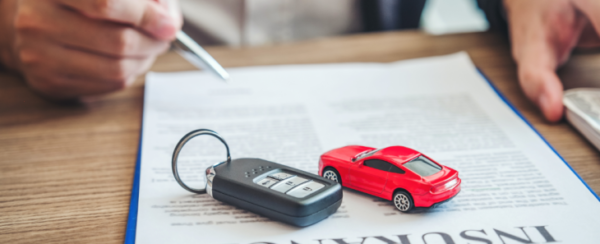Let’s face it, insurance policies can be downright difficult to understand if not outright confusing. And the Florida no-fault law is just one of the many aspects of car insurance that is complicated but a part of our daily lives.
If you have ever been in a car accident in Florida, then you should know even a little bit about the Florida no-fault law. But how exactly does the no-fault law work and what is personal injury protection insurance? And how are you supposed to figure out these changes and differences without the help of a personal injury lawyer?
It’s difficult to keep and track and hard to know for sure. And you should not wait until a car accident to figure it all out. It may be too late! That’s why it’s highly important to be fully informed of what your coverage is and how your state protects you.

Personal Insurance Protection (PIP) Insurance
 In 1971, Florida became the second state to make an agreement with local insurance companies that all insured individuals in a car accident should be covered up to $10,000 regardless of who’s at fault. It was called the “No-Fault” law and here’s what you need to know about it.
In 1971, Florida became the second state to make an agreement with local insurance companies that all insured individuals in a car accident should be covered up to $10,000 regardless of who’s at fault. It was called the “No-Fault” law and here’s what you need to know about it.
The Florida no-fault law requires all drivers to buy Personal Injury Protection (PIP) insurance, which offers coverage for a range of damages to a victim in the event of a car accident.
This coverage takes effect no matter who caused the accident and PIP insurance will pay for all qualified losses up to the policy limits.
PIP coverage
 So what does PIP insurance cover? PIP insurance doesn’t cover everything, and it doesn’t mean that it would be impossible for someone to file a claim against you. It simply means that every driver in Florida needs to file a report with his insurance companies for a claim, no matter who was at fault.
So what does PIP insurance cover? PIP insurance doesn’t cover everything, and it doesn’t mean that it would be impossible for someone to file a claim against you. It simply means that every driver in Florida needs to file a report with his insurance companies for a claim, no matter who was at fault.
That’s the key point of the Florida no-fault law: your insurance covers you no matter what. It is inherent protection for drivers.
PIP covers 80% of the medical bills for injuries sustained in an accident, 80% of prescription medications related to the injuries incurred in an accident, 60% of lost or reduced income, and travel to and from any medical facility.
The 10/20/10 rule
Florida’s No-Fault law follows the 10/20/10 rule. This means that if you have PIP insurance, you will get $10,000 for bodily injury coverage with maximum coverage of $20,000 per accident and $10,000 for coverage on property damage per accident.
In the event of death, PIP insurance also offers a $5,000 benefit for the victim, which will be given to the beneficiaries. There are some exceptions to this rule, however, and it will depend on the extent or permanence of the injury.
Always Talk to a Lawyer
We like to think that it goes without saying, but sometimes it has to be said: always consult your lawyer before making any decisions about lawsuits or about anything. Even if you think no one was at-fault in your car accident, still reach out to a lawyer as soon as possible.
It’s best to consult your case with a lawyer who specializes in these circumstances so you can get the legal advice that you need and ensure that you’re making the right claims for your accident.
If you were involved in a car accident and need legal representation, call our car accident lawyers for a free consultation: (800) 560-5059.
About the Author

Sean Greene
Sean J. Greene has recovered more than $150 million in the past 10 years for clients. He specializes within the firm in wrongful death, personal injury, medical malpractice, nursing home malpractice, and product liability cases.
Sean has represented coaches and players in the National Football League (NFL) and Major League Baseball (MLB) who have been victims of personal injuries. In 2001, after winning a trial on liability, he recovered $11,200,000 for the family of David Griggs, the former Miami Dolphins player who died in an automobile accident in Broward County, Florida.
He has received the highest distinction of an AV® rated attorney by Martindale-Hubbell, which recognizes Sean as possessing “Very High-Preeminent” legal ability with “Very High” ethical standards. Additionally, he is a member of the prestigious Multi-Million Dollar Advocates Forum whose membership is limited to trial lawyers who have achieved a trial verdict or settlement in the amount of $1,000,000 or more. Sean is widely known in South Florida, as he cohosted the TV program “Your Legal Rights” and lectures throughout the state of Florida on various legal issues.

Sean Greene
Sean J. Greene has recovered more than $150 million in the past 10 years for clients. He specializes within the firm in wrongful death, personal injury, medical malpractice, nursing home malpractice, and product liability cases. Sean has represented coaches and players in the National Football League (NFL) and Major League Baseball (MLB) who have been victims of personal injuries. In 2001, after winning a trial on liability, he recovered $11,200,000 for the family of David Griggs, the former Miami Dolphins player who died in an automobile accident in Broward County, Florida. He has received the highest distinction of an AV® rated attorney by Martindale-Hubbell, which recognizes Sean as possessing “Very High-Preeminent” legal ability with “Very High” ethical standards. Additionally, he is a member of the prestigious Multi-Million Dollar Advocates Forum whose membership is limited to trial lawyers who have achieved a trial verdict or settlement in the amount of $1,000,000 or more. Sean is widely known in South Florida, as he cohosted the TV program “Your Legal Rights” and lectures throughout the state of Florida on various legal issues.
